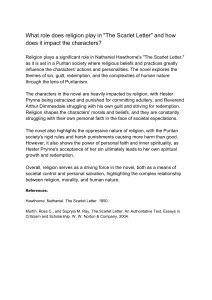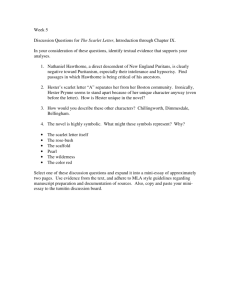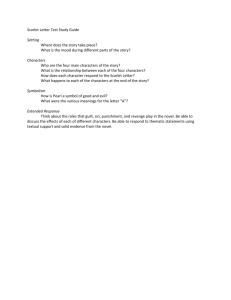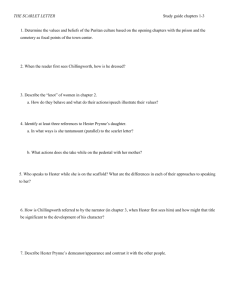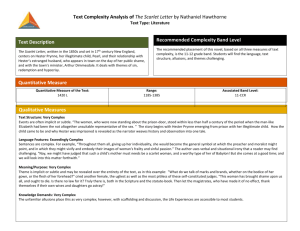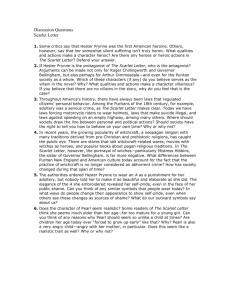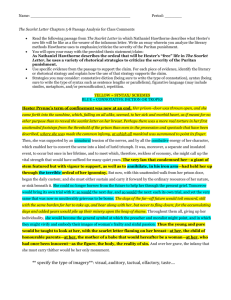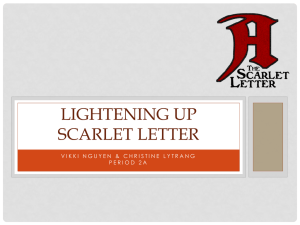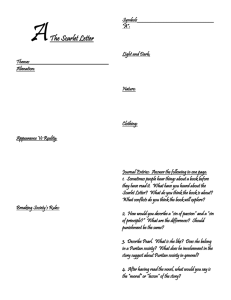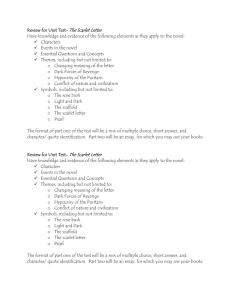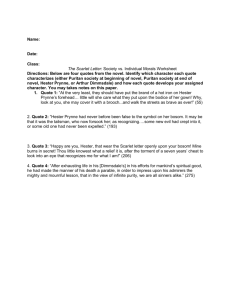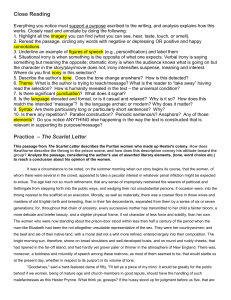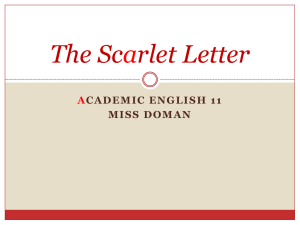Chapter I: The Prison Door
advertisement
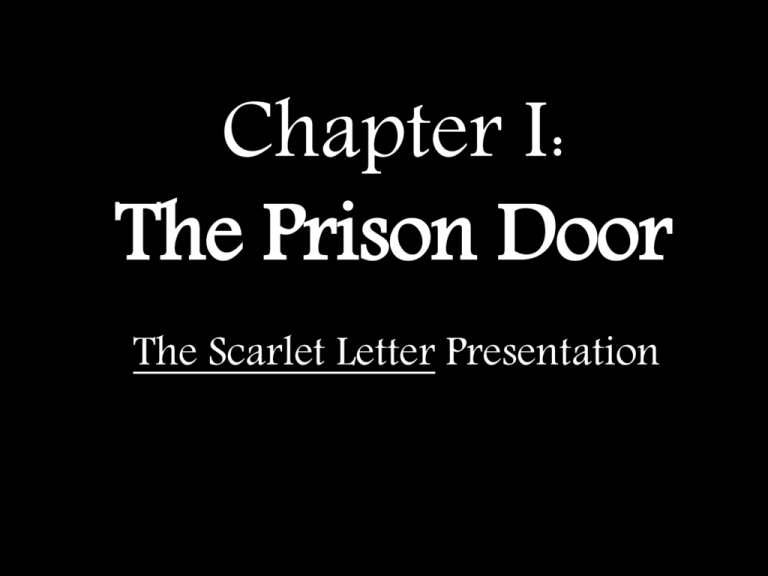
Chapter I: The Prison Door The Scarlet Letter Presentation Chapter Summary Nathaniel Hawthorne sets up the setting of this story in the first chapter of the Scarlet Letter. He illustrates the town of Boston, Massachusetts, outside of a prison-house door sometime in June 1642. The building is described as ugly, and it is a metaphor to the fact that crime exists even amongst people dedicated to making themselves better people, in other words, hypocrisy. An important feature near the door is a rose bush blooming on one side of it. They believe it sprung up under the footsteps of the sainted Ann Hutchinson as she entered the prison-door. The narrator suggests that it symbolizes the moral of the story, that there is hope and foreshadowing that a tale of human frailty and sorrow is about to be told. Critique Summary James Watts thinks that the Scarlet Letter is still relevant in today’s world despite the fact that it was an old Puritan story about a woman by the name of Hester Prynne who committed adultery and was forced to wear a scarlet letter so everyone would know that she was guilty of that sin. He is directing a version of a play for this book. He states that he remembers reading this novel in high-school and likes how it portrays the story of “the strength of women and the weakness of men”. This article also describes how harsh society blows things out of proportion because of a young woman who made one mistake. Hester Prynne is described as someone who is emotionally strong and confident, regardless of the harsh circumstances. Source: Watts, James D. Jr. "'Scarlet Letter' still relevant." Tulsa World (OK) 13 Jan. 2011: Newspaper Source. Web. 20 Aug. 2012. Response to Critique I definitely agree with what is said in that article! People make mistakes all the time. Every sinner has a future, every saint has a past. And you can’t just judge people just because they sin differently from you. The Scarlet Letter also proves the point that back in those times, people looked down upon women very differently than they did men. Some of those factors still exist in society today. Women do have to go through a lot, and society definitely plays a big role in the negativity in the world today. Theme of Chapter Hope is the main theme of this chapter and is best symbolized by the beautiful rose bush in the repulsive prison-door setting. The fact that it is still blooming gives hope that regardless of the bad, good is still around and you just have to find the “good” in every bad situation. This theme is setting itself up for the events about to occur in this suspenseful novel. Main Character(s) The only character in this chapter is the narrator who is setting the tale up by talking about the setting and giving a little bit of background information before he dives into Hester Prynne’s story. Present-Day Connection • This chapter could connect to the disaster of Hurricane Katrina which destroyed the coast and made it “ugly” but with hope it is now rebuilt and back to looking beautiful. However, it would not be possible if pieces were not left behind from some of the buildings that were destroyed, to give builders and residents hope that it will be fixed. “What if” Q & A Q: What if Nathaniel Hawthorne just dove into the novel and story about Hester Prynne without illustrating the setting and displaying symbolism through the rose bush? A: I feel like this question will be better answered as the novel progresses; however, I feel like in the couple of paragraphs of this chapter, it is really hinting onto how this book is going to turn out. If it wasn’t for the rose bush representation, I would think that this whole book was going to be one depressing novel, but that gives me hope that it may have a happy ending!
